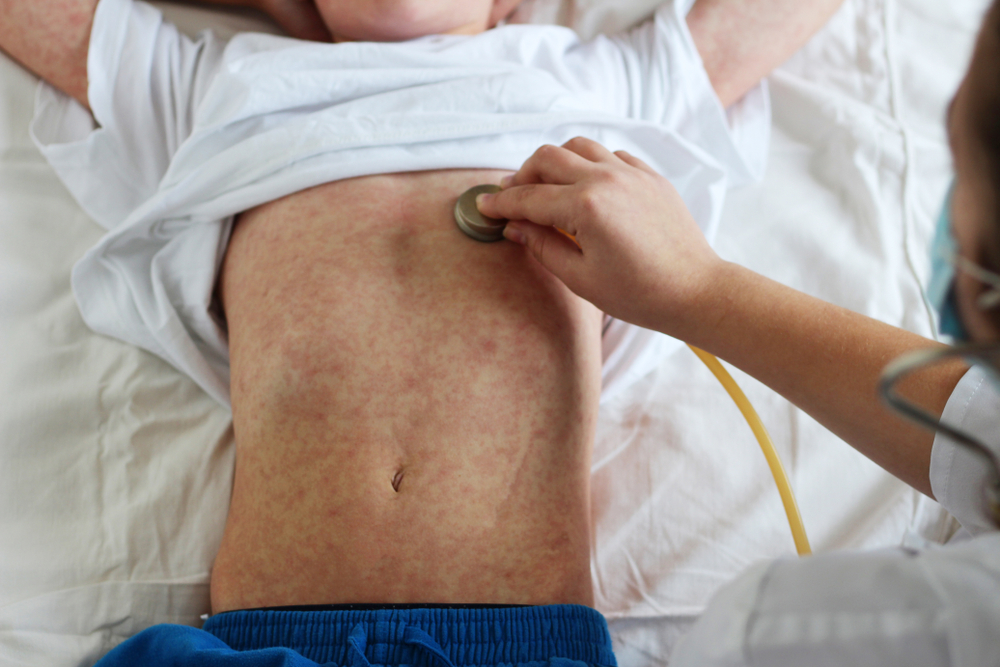
A growing lack of vaccination among Texas youth is leaving schools and the cities that house them increasingly at risk to measles outbreaks, according to new findings published by the University of Pittsburgh Graduate School of Public Health.
The findings were published in the journal JAMA Network Open after being requested by the Texas Pediatric Society. They are based on a computer simulation based on real-world vaccination data and Census data. It creates a synthetic population that then goes about their lives from home to work or school, spreading potential contagions. The tool is called the Framework for Reconstruction Epidemiological Dynamics (FRED) and was previously used by California legislators is passing a bill restricting vaccine exemptions for school-age children.
In Texas, the simulation suggests an additional 5 percent decrease in vaccination rates would increase the size of a potential measles outbreak by as much as 4,000 percent in certain areas. Vaccination rates have already been trending downward consistently since 2003. Given the high contagion rate of measles and its capability to kill approximately one out of every 1,000 children infected, that marks a serious concern.
“At current vaccination rates, there’s a significant chance of an outbreak involving more than 400 people right now in some Texas cities,” Dr. David Sinclair, lead author and a postdoctoral researcher in Pitt’s Public Health Dynamics Laboratory, said. “We forecast that a continuous reduction in vaccination rates would exponentially increase possible outbreak sizes.”
The existing measles vaccine is extremely effective, bringing 97 percent immunity to users after just two doses. However, more parents are opting their children out of vaccine requirements for religious or personal reasons — such exemptions increased from 2,300 in 2013 to 64,000 cases in 2016. Though the majority of cases in an outbreak would occur in children unvaccinated because of these exemptions, children unable to be vaccinated due to certain prohibitive medical conditions or failed vaccine attempts, and unvaccinated adults would also be at risk.




